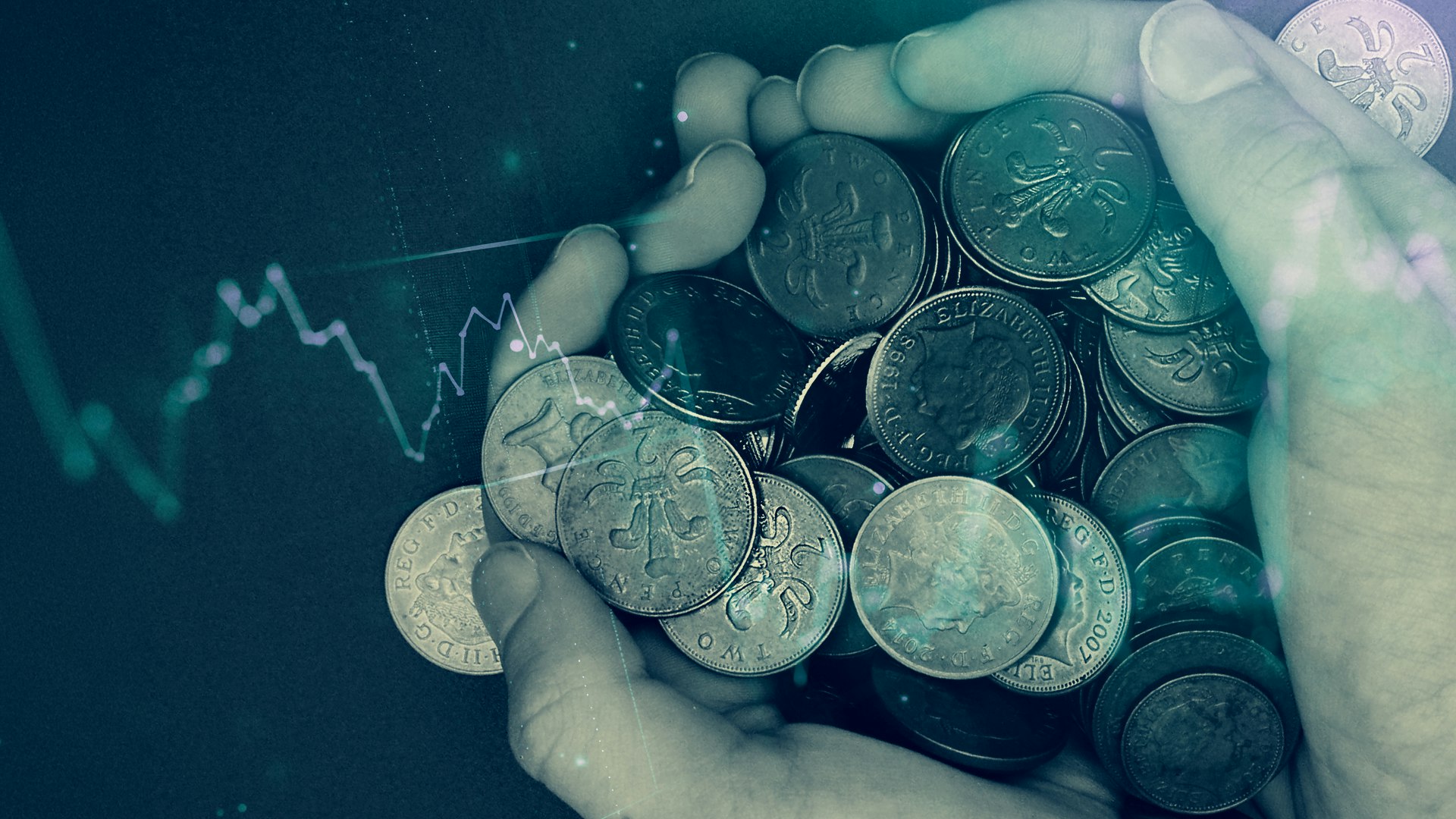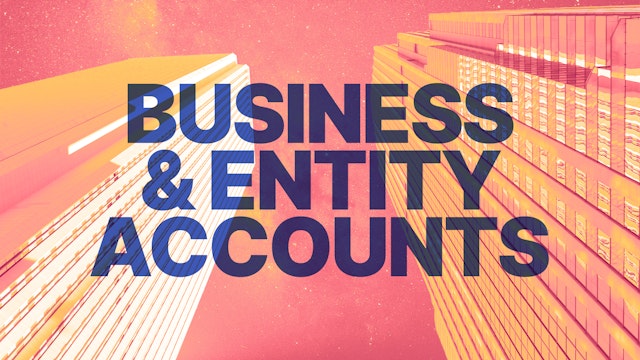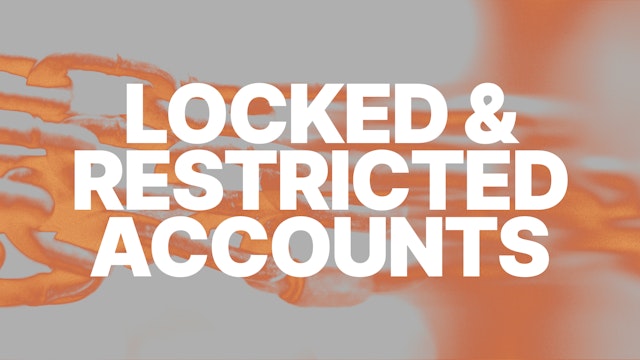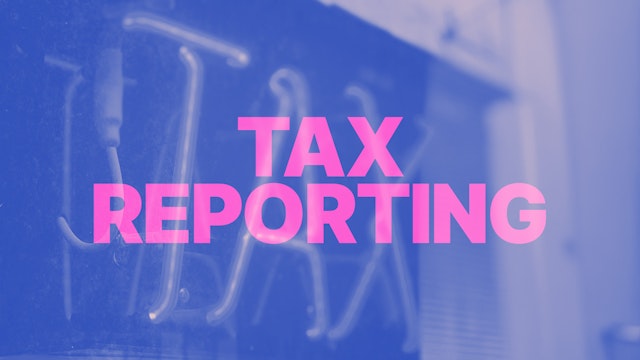Crypto Tax: Am I an Investor or Trader?
Investor or trader? There is an important tax distinction between these two things, so here is what you need to know.
In this article...
- Crypto tax is something all crypto investors need to think about
- Are you a crypto investor or a crypto trader? Or both?
- The distinction between the two has tax implications.

Crypto tax talk: If you’re a CoinJar customer navigating cryptocurrency taxation in the UK, one of the first steps is determining whether HMRC classifies you as an investor or a trader.
This distinction is crucial because it directly impacts how your crypto activities are taxed.
Investor
An investor is someone who primarily engages in buying, selling, or holding cryptocurrencies as a personal investment tool. If this sounds like you, your income from crypto will typically come from:
-Capital gains (profits from selling or trading crypto)
-Staking rewards
-Forks, and
-Airdrops.
The majority of people interacting with cryptocurrencies fall into this category. As an investor, your crypto transactions are subject to Capital Gains Tax (CGT) whenever you sell, trade, or give away your digital assets.
Trader
On the other hand, a trader is someone whose primary source of income comes from frequent and substantial cryptocurrency trading. Unlike investors, traders are not assessed on individual capital gains events. Instead, their profits are treated as personal income and are subject to Income Tax and National Insurance (NI) contributions.
However, becoming a trader isn’t as simple as trading crypto regularly. HMRC sets a high bar for this classification. You’d need to demonstrate that your trading activities resemble running a professional, one-person financial operation. If you’re unsure about your status, it’s safe to assume you’re likely classified as an investor unless HMRC explicitly states otherwise.
For more detailed guidance on what constitutes a trader, visit HMRC’s official resources or consult a tax professional.
What is Capital Gains Tax (CGT)?
Since most crypto users are classified as investors, understanding Capital Gains Tax (CGT) is a good idea. HMRC treats cryptocurrencies as assets, similar to stocks or property. This means every time you sell, trade, or even gift your crypto, you’ll need to assess whether you’ve made a capital gain or loss.
When does CGT apply?
A capital gains event only occurs when you take action with your crypto, such as selling it or exchanging it for another asset. Simply holding (or “HODLing”) your crypto without making any transactions does not trigger a taxable event, even if its value fluctuates significantly.
How are capital gains calculated?
Your capital gain is the difference between the price you paid for the crypto and the price you sold it for.
For example:
-You buy 1 Bitcoin for £70,000.
-Six months later, you sell it for £100,000.
-Your capital gain is £30,000 (£100,000 - £70,000).
You’ll need to pay tax on this gain, but certain costs can reduce your taxable amount.
Allowable costs: Reducing your tax liability
HMRC allows you to deduct allowable costs from your capital gains. These include:
-Transaction fees charged by exchanges
-Network fees required to process blockchain transactions
-Professional fees related to the sale (e.g., legal or advisory services).
For instance, if you paid £50 in transaction fees to sell your Bitcoin, your capital gain would be reduced to £29,950 (£30,000 - £50).
Pooling your crypto assets: Simplifying cost basis
If you’ve purchased the same cryptocurrency multiple times at different prices, HMRC allows you to calculate an average cost basis by pooling your acquisition costs. Here’s how it works using a fictional coin called BaoBun:
-You buy 1 BaoBun in 2017 for £3,000.
-In 2019, you buy another BaoBun for £7,000.
-Your pooled cost basis is now £5,000 per BaoBun (£10,000 total cost ÷ 2 BaoBunsBitcoins).
If you later sell one BaoBun for £9,000, your capital gain is £4,000 (£9,000 - £5,000 pooled cost).
Capital losses: Offsetting your gains
If the value of your cryptocurrency decreases between the time you bought and sold it, you’ve incurred a capital loss. For example:
-You buy 1 BaoBun for £7,000.
-Later, you sell it for £4,000.
-Your capital loss is £3,000.
Capital losses can be used to offset capital gains in the same financial year or carried forward for up to four years. For instance:
-If you make a £5,000 gain on one trade and a £3,000 loss on another, your net gain is £2,000 (£5,000 - £3,000).
Keep in mind that capital losses cannot be used to offset income from work or other non-crypto sources, it only applies to capital gains income.
Negligible value claims: Dealing with worthless tokens
In the volatile world of crypto, it’s not uncommon to hold tokens that eventually become worthless. If this happens, you can file a negligible value claim with HMRC. This allows you to
For example:
-You bought a token for £500, but its value has dropped to zero.
-By filing a negligible value claim, you can record a £500 capital loss.
It’s important to note that assets must have lost value while you owned them. They cannot have been worthless at the time of purchase. Additionally, timing matters: losses must be claimed in the correct tax year and cannot be carried back to previous years.
Crypto tax calculators
There are now crypto tax calculators that can track all of your trades. This will save you a lot of work.
Many of the crypto calculator companies give CoinJar customers a discount that we can pass on to you. Check this page for more details.
Are you a trader or investor?
Navigating cryptocurrency taxation in the UK as a CoinJar customer boils down to understanding whether HMRC views you as an investor or a trader. This is a distinction that shapes how your crypto activities are taxed.
For most users, the investor classification applies, subjecting their transactions to Capital Gains Tax (CGT) on profits from selling, trading, or gifting crypto, as well as income from staking, forks, and airdrops.
CGT only kicks in when you act on your assets, not when you simply hold them. Investors benefit from tools like allowable costs, asset pooling, and capital loss offsets to manage their tax liability, while niche options like negligible value claims offer relief for worthless tokens.
Traders, however, face a higher bar, with their profits taxed as income under stricter HMRC criteria, reserved for those operating at a near-professional level.

Suggested Articles

How to Set Up a CoinJar Account for Your Company in the United Kingdom
You can set up a CoinJar account for your company or business entity. Here are the steps you can follow to achieve this.Read more
Your CoinJar Account is Restricted: Why It Happens and How to Fix It
Resolution steps: A clear guide on how to verify your identity and contact support to regain access.Read more
Exporting Your Trading and Transaction History for Tax Purposes
A step-by-step guide for CoinJar customers: How to export your trading and transaction history for the tax year.Read moreBrowse by topic
Standard Risk Warning: The above article is not to be read as investment, legal or tax advice and it takes no account of particular personal or market circumstances; all readers should seek independent investment advice before investing in cryptocurrencies.
The article is provided for general information and educational purposes only, no responsibility or liability is accepted for any errors of fact or omission expressed therein. Past performance is not a reliable indicator of future results. We use third party banking, safekeeping and payment providers, and the failure of any of these providers could also lead to a loss of your assets.
We recommend you obtain financial advice before making a decision to use your credit card to purchase cryptoassets or to invest in cryptoassets.
Capital Gains Tax may be payable on profits.
CoinJar's digital currency exchange services are operated in the UK by CoinJar UK Limited (company number 8905988), registered by the Financial Conduct Authority as a Cryptoasset Exchange Provider and Custodian Wallet Provider in the United Kingdom under the Money Laundering, Terrorist Financing and Transfer of Funds (Information on the Payer) Regulations 2017, as amended (Firm Reference No. 928767).
In the UK, it's legal to buy, hold, and trade crypto, however cryptocurrency is not regulated in the UK. It's vital to understand that once your money is in the crypto ecosystem, there are no rules to protect it, unlike with regular investments.
You should not expect to be protected if something goes wrong. So, if you make any crypto-related investments, you're unlikely to have recourse to the Financial Services Compensation Scheme (FSCS) or the Financial Ombudsman Service (FOS) if something goes wrong.
The performance of most cryptocurrency can be highly volatile, with their value dropping as quickly as it can rise. Past performance is not an indication of future results.
Remember: Don't invest unless you're prepared to lose all the money you invest. This is a high-risk investment and you should not expect to be protected if something goes wrong. Take 2 mins to learn more.
UK residents are required to complete an assessment to show they understand the risks associated with what crypto/investment they are about to buy, in accordance with local legislation. Additionally, they must wait for a 24-hour "cooling off" period, before their account is active, due to local regulations. If you use a credit card to buy cryptocurrency, you would be putting borrowed money at a risk of loss.
We recommend you obtain financial advice before making a decision to use your credit card to purchase cryptoassets or to invest in cryptoassets.
Specific risks associated with stablecoins: There is a risk that any particular stablecoin may not hold their value as against any fiat currency; or may not hold their value as against any other asset. Stablecoins carry the following risks:
Depegging events: Depegging events may occur with stablecoins that fail to maintain adequate controls and risk mitigants. A depegging event is when the value of the stablecoin no longer matches the value of the underlying asset. This could result in a loss of some or all of your investment.
• Counterparty risk: Counterparty risk arises when an asset is backed by collateral, involving a third party maintaining the collateral, which introduces risk if the party becomes insolvent or fails to maintain it.
• Redemption risk: Redemption risk refers to the possibility that an asset's ability to be redeemed for underlying collateral may not be as anticipated during market fluctuations or operational issues.
• Collateral risk: Collateral risk refers to the possibility of the collateral's value declining or becoming volatile, potentially impacting the asset's stability, particularly when it is another crypto-asset.
• Exchange rate fluctuations: Stablecoins, often denominated in US Dollars, expose investors to fluctuations in the USD:GBP exchange rate.
• Algorithmic risk: Algorithm risk refers to the possibility of an asset's stability being compromised due to unexpected failure or behaviour of the underlying algorithm, potentially leading to loss of value.
Specific risks associated with meme coins: 'Meme coins' (e.g. DOGE, SHIB, PEPE) are crypto-assets whose value is driven primarily by community interest and online trends. Meme coins carry the following risks:
• Volatility risk: Meme coins can have extreme price volatility, often experiencing rapid and unpredictable price fluctuations within short periods. The value of meme coins can be influenced by social media trends, celebrity endorsements, and other factors unrelated to traditional investment fundamentals.
• Lack of utility: Meme coins often lack intrinsic value or utility, being primarily driven by community interest, online trends, and speculative trading.
• Market manipulation: Meme coins may be susceptible to increased risk of market manipulation including 'pump-and-dump' schemes, where the price is artificially inflated followed by a sudden crash.
• Lack of transparency: Meme coins may have limited available information about their development teams, goals, and financials. This lack of transparency can make it challenging to assess the credibility and potential of a meme coin accurately.
• Emotional investing: Meme coins often garner strong emotional reactions from investors, leading to impulsive decisions. Emotional trading activity can amplify losses. Specific risks associated with DeFi tokens
Decentralised Finance (or 'DeFi') tokens (e.g. UNI, AAVE) are crypto-assets linked to financial applications and protocols built on decentralised blockchain technology.
DeFi tokens carry the following risks:Smart contract risk: DeFi relies heavily on smart contracts. Even a minor coding error or oversight can lead to a contract being exploited, potentially resulting in significant losses for DeFi tokens.
Regulatory risk: DeFi operates in a decentralised manner, often without intermediaries or financial crime controls. Regulatory bodies across jurisdictions might introduce new regulations impacting the use, value, or legality of certain DeFi protocols or assets. Rug-pulls / Exit scams: Some DeFi projects might be launched by anonymous or pseudonymous teams, increasing the risk of "rug pulls" where developers abandon the project and withdraw funds, leaving investors with worthless tokens.
Data/oracle risk: DeFi protocols often rely on external data sources or 'oracles. Manipulation or inaccuracies in these data sources can lead to unintended financial outcomes within the protocols.
Protocol complexity: The complexity of some DeFi protocols can make it difficult for average users to fully understand the mechanisms and associated risks.
If you use a credit card to buy cryptocurrency, you would be putting borrowed money at a risk of loss. We recommend you obtain financial advice before making a decision to use your credit card to purchase cryptoassets or to invest in cryptoassets.
Your information is handled in accordance with CoinJar’s Privacy Policy.
Cryptoassets traded on CoinJar UK Limited are largely unregulated in the UK, and you are unable to access the Financial Service Compensation Scheme or the Financial Ombudsman Service.
We use third party banking, safekeeping and payment providers, and the failure of any of these providers could also lead to a loss of your assets.
We recommend you obtain financial advice before making a decision to use your credit card to purchase cryptoassets or to invest in cryptoassets. Capital Gains Tax may be payable on profits.
CoinJar’s digital currency exchange services are operated in the UK by CoinJar UK Limited (company number 8905988), registered by the Financial Conduct Authority as a Cryptoasset Exchange Provider and Custodian Wallet Provider in the United Kingdom under the Money Laundering, Terrorist Financing and Transfer of Funds (Information on the Payer) Regulations 2017, as amended (Firm Reference No. 928767).
Apple Pay and Apple Watch are trademarks of Apple Inc. Google Pay is a trademark of Google LLC.
This site is protected by reCAPTCHA and the Google Privacy Policy and Terms of Service apply.

